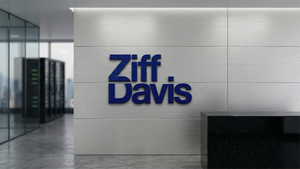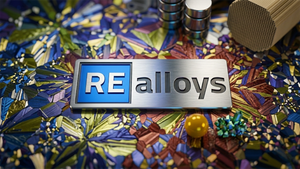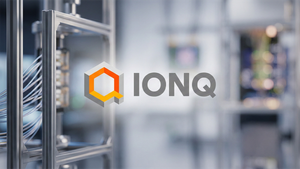
New York, NY – November 26, 2025 – The U.S. stock market is experiencing a significant surge, with S&P 500 futures pointing to a strong open and the Nasdaq Composite (NDAQ) enjoying a robust boost, largely thanks to groundbreaking developments from tech titan Alphabet (GOOGL). This renewed optimism among investors is primarily driven by the increasing likelihood of an impending interest rate cut by the Federal Reserve and the transformative advancements in artificial intelligence, with Alphabet leading the charge.
The confluence of these factors has created a "risk-on" environment, pushing equity markets higher and signalling a potentially strong close to the trading year. As the market looks ahead to a holiday-shortened week, the focus remains squarely on monetary policy signals and the continued innovation within the technology sector, which appears poised to redefine market leadership.
Alphabet's AI Breakthroughs Propel Tech Sector Amidst Broader Market Optimism
The current market enthusiasm is multi-faceted, stemming from both macroeconomic expectations and company-specific catalysts. A primary driver for the rising S&P 500 futures is the heightened anticipation of a Federal Reserve interest rate cut in December. According to the CME FedWatch tool, market predictions indicate an 80-83% likelihood of a quarter-percentage point reduction. This dovish shift by the Fed is influenced by recent softer inflation signals and a corresponding decrease in Treasury yields, making equities more attractive. Furthermore, improved corporate earnings reports from several major companies have bolstered confidence that the corporate sector is successfully navigating economic conditions, alleviating fears of a widespread downturn.
On the technology front, Alphabet (GOOGL) (NASDAQ: GOOGL) is at the epicenter of the Nasdaq's impressive performance. The unveiling of its advanced Gemini 3 AI model on November 18, 2025, has been a significant catalyst. Analysts widely regard Gemini 3 as outperforming rival models from OpenAI and Anthropic, with its immediate integration into Google's search engine and superior performance across various benchmarks—including coding, tool use, math, science, and multi-modal reasoning—igniting substantial investor enthusiasm. This technological breakthrough has firmly positioned Alphabet as a leading contender in the fiercely competitive AI race.
Further bolstering Alphabet's stock is recent speculation regarding a potential partnership with Meta Platforms (META) (NASDAQ: META), which is reportedly considering using Google's custom AI chips (TPUs) in its data centers. This multi-billion-dollar deal would not only represent a significant new revenue stream for Google Cloud but also pose a direct challenge to Nvidia's (NVDA) (NASDAQ: NVDA) established dominance in the AI chip market. Coupled with a substantial cloud infrastructure contract recently secured with NATO, Alphabet's cloud computing segment is demonstrating robust growth. Alphabet's stock has seen a rapid ascent, briefly becoming the third-biggest U.S. company by market capitalization, surpassing Microsoft (MSFT) (NASDAQ: MSFT). The company's shares jumped over 6% following the Gemini 3 announcement and continued to climb on news of the Meta talks, contributing to the Nasdaq Composite's best daily performance since May. This rally has also positively impacted other major AI-linked technology stocks, with chipmakers like Broadcom (AVGO) (NASDAQ: AVGO) and Micron Technology (MU) (NASDAQ: MU) experiencing significant gains, even as Nvidia and Advanced Micro Devices (AMD) (NASDAQ: AMD) saw some dips due to increased competition fears. The broader market sentiment in late November 2025 is largely positive, with the Nasdaq Composite, S&P 500 (SPX), and Dow Jones Industrial Average (DJIA) all posting gains to begin a holiday-shortened trading week. The VIX, a measure of market volatility, has eased, suggesting reduced investor worry, although mixed economic data, such as lower-than-expected retail sales and consumer confidence figures, introduce a note of caution.
Market Movers: Who Wins and Who Loses in the AI and Rate Cut Rally
The current financial landscape, characterized by Alphabet's (GOOGL) (NASDAQ: GOOGL) AI breakthroughs and a broader "risk-on" market sentiment, is creating distinct winners and losers across various sectors, particularly within technology. The mechanisms of these impacts are deeply intertwined with innovation, market competition, and macroeconomic shifts.
Alphabet (GOOGL) itself stands as the most prominent winner. The Gemini 3 model is being hailed as a "game changer," demonstrating "PhD-level reasoning" and outperforming rival AI models. This has not only propelled Alphabet's stock but also significantly bolstered its Google Cloud Platform (GCP) (NASDAQ: GOOGL), which is now better positioned to capture the surging demand for AI compute amidst infrastructure constraints. Analysts project a substantial 29.9% compound annual growth rate (CAGR) in Google Cloud revenue through 2030. Furthermore, Gemini 3's integration into core products like Google Search, YouTube, and Google Workspace is enhancing engagement and unlocking higher monetization opportunities, defying earlier concerns about AI cannibalization. Alphabet's vertical integration, encompassing proprietary Tensor Processing Units (TPUs), first-party data, and custom foundation models, reinforces its self-sufficiency and competitive edge. Companies that integrate or extensively leverage Alphabet's advanced AI offerings in their services, such as Salesforce (CRM) (NYSE: CRM), whose CEO Marc Benioff lauded Gemini 3 as world-changing, are also poised to benefit from enhanced capabilities and market differentiation.
Conversely, several established players face significant challenges. Nvidia (NVDA) (NASDAQ: NVDA), long the undisputed leader in the AI chip market, is now confronting a formidable threat. The reported multi-billion-dollar deal for Meta Platforms (META) (NASDAQ: META) to purchase Alphabet's TPUs instead of Nvidia's GPUs would directly challenge Nvidia's dominance, potentially impacting its market share, pricing power, and data center revenue. This move signals an intensifying competition in the AI semiconductor market, prompting other hyperscalers to consider diversifying their chip vendors. While still a major force, Microsoft (MSFT) (NASDAQ: MSFT) has also seen its shares drop since their October peak, as investors weigh whether its leading position in AI infrastructure can withstand Alphabet's rapid advances. Outages at Microsoft Azure have also subtly highlighted the reliability advantages of multi-cloud strategies, potentially benefiting Google Cloud. Moreover, OpenAI/ChatGPT faces a direct challenge from Gemini 3's superior performance, with analysts suggesting a potential diversion of significant spending if Google's AI models gain further market dominance. Other companies like Advanced Micro Devices (AMD) (NASDAQ: AMD), Oracle (ORCL) (NYSE: ORCL), and Broadcom (AVGO) (NASDAQ: AVGO), particularly those supplying hardware or services to competing AI ecosystems, could experience reduced spending if Alphabet's integrated AI strategy continues to gain significant market share.
Beyond specific company dynamics, the broader "risk-on" market sentiment, fueled by anticipated Federal Reserve interest rate cuts, generally benefits technology and AI growth stocks. Lower interest rates reduce the cost of capital, making it cheaper for companies to fund crucial AI research, development, and infrastructure investments. This environment encourages investors to allocate capital into higher-growth assets, driving up stock valuations and making it easier for companies to raise capital through equity markets. The IT services industry is also expected to benefit as enterprises increase investments in digital transformation projects, including those incorporating AI. However, this sentiment also carries risks; concerns about the sustainability of high valuations in certain AI stocks persist, and a market correction could occur if anticipated rate cuts do not materialize as expected, or if the monetization of AI investments lags behind the rapid spending.
A New Era: AI's Broad Impact on Industry, Regulation, and Market Dynamics
Alphabet's (GOOGL) (NASDAQ: GOOGL) recent AI advancements, particularly with its Gemini 3 model and proprietary Tensor Processing Units (TPUs), are not just driving individual stock performance; they are fundamentally reshaping the technology landscape and influencing broader market trends, including the upward trajectory of S&P 500 futures. This surge is emblematic of an escalating "AI race" among tech giants, intensifying competition in the cloud sector, creating significant ripple effects across the industry, and bringing regulatory scrutiny to the forefront.
The technology sector is currently embroiled in an "AI arms race," with giants like Alphabet, Microsoft (MSFT) (NASDAQ: MSFT), and Meta Platforms (META) (NASDAQ: META) investing billions to secure dominance. This intense competition is characterized by a relentless pursuit of speed and continuous innovation in AI development. Cloud computing and AI are intrinsically linked, with cloud platforms providing the essential infrastructure for deploying and scaling AI applications. The demand for cloud resources is skyrocketing due to the heavy computing requirements for training and deploying large language models. Amazon Web Services (AWS) (NASDAQ: AMZN), Microsoft Azure, and Google Cloud Platform (GCP) (NASDAQ: GOOGL) dominate this space, and AI is intensifying the competition among them. Alphabet's vertical integration strategy, optimizing its TPUs for Google Cloud and its AI models, could significantly shift cloud market dynamics by offering compelling cost and performance advantages, compelling rivals to deepen their own integrated AI ecosystems to keep pace.
Alphabet's AI ascendancy is creating significant ripple effects across the industry. Long-standing leaders like Nvidia (NVDA) (NASDAQ: NVDA) in the AI chip market face increasing pressure from Alphabet's custom TPU strategy, which is impacting Nvidia's stock and prompting other chipmakers like Advanced Micro Devices (AMD) (NASDAQ: AMD) and Intel (INTC) (NASDAQ: INTC) to innovate faster and seek strategic partnerships. There are growing concerns that a single "hyperscale winner" in AI, such as Alphabet, could have adverse effects on other technology giants, potentially eroding market share for traditional software providers and leading to consolidation among smaller AI startups that lack the financial and data resources of tech behemoths. While some AI startups benefit from more accessible and cost-effective compute alternatives offered by specialized AI cloud providers, many remain highly dependent on the AI infrastructure provided by Amazon (AMZN) (NASDAQ: AMZN), Google, and Microsoft.
The rapid advancement of AI has also brought increasing scrutiny from governments and regulators worldwide, leading to a growing call for comprehensive AI regulation. Key concerns revolve around privacy, ethics, bias in AI algorithms, data security, transparency, explainability, accountability, and the potential for job displacement. The European Union's Artificial Intelligence Act stands as a leading example of a comprehensive regulatory framework, aiming to balance innovation with ethical considerations. In the United States, regulatory efforts are still evolving, with agencies exploring AI guidelines and major tech companies advocating for a unified federal framework to prevent a patchwork of state laws. Intellectual property rights and the use of publicly available data to train AI models are also significant areas of debate and legal challenge, with compliance entailing significant costs and challenges for tech companies.
The current AI boom is drawing comparisons to past transformative technological eras, most notably the dot-com bubble of the late 1990s and early 2000s. Similar to the dot-com era, there is significant market exuberance, speculative investment, and a "fear of missing out" among investors, with companies developing AI software, semiconductor chips, and energy infrastructure seeing exorbitant increases in value. However, crucial distinctions differentiate the current AI boom from the dot-com bust. Today's leading AI companies and hyperscalers, including Alphabet, Microsoft, and Amazon, are generating substantial profits and possess strong cash flows, funding AI infrastructure investments with healthy profit margins rather than relying heavily on debt. AI projects are already demonstrating strong profitability and contributing to revenue growth, such as Microsoft's Azure platform and Amazon's multibillion-dollar AI revenue run rate. Furthermore, the current AI boom is heavily dominated by a few well-established tech giants that control most of the cloud infrastructure, AI chips, and computing power, unlike the proliferation of numerous, often unsustainable, startups during the dot-com era. While the S&P 500 Shiller CAPE Ratio is high enough to raise concerns, analysts generally suggest that the AI sector, though potentially due for short-term pullbacks, is not artificially inflated to the extent of causing a dot-com-like crash, primarily due to the strong fundamentals and actual earnings of the leading companies. The current investment in AI represents a structural shift in how tech firms invest, with a strong emphasis on long-term capital expenditure for data centers, high-performance chips, and cloud networks.
The Road Ahead: Navigating AI's Uncharted Waters and Market Evolution
Alphabet's (GOOGL) (NASDAQ: GOOGL) aggressive advancements in artificial intelligence are poised to significantly reshape market trajectories, drive strategic pivots, and present both opportunities and challenges for the company in the short and long term. This outlook is further influenced by anticipated Federal Reserve (Fed) rate cuts and the relentless pace of ongoing AI competition, particularly as we move from late 2025 into 2026 and beyond.
In the short term (late 2025 - 2026), Alphabet is expected to capitalize on enhanced monetization opportunities by rapidly integrating Gemini into its core offerings, leading to increased precision in search, personalized content, and optimized enterprise solutions. This will likely involve aggressive marketing campaigns to attract enterprise clients and boost monetization across Google Cloud Platform (GCP) (NASDAQ: GOOGL) and its advertising business. A significant strategic pivot is the aggressive externalization of Alphabet's Tensor Processing Units (TPUs). Rumored multi-billion-dollar deals with Meta Platforms (META) (NASDAQ: META) for TPU rentals in 2026 and purchases in 2027, alongside Anthropic's commitment to one million TPUs, position Alphabet as a formidable supplier in the AI hardware market, creating new revenue streams. Google Cloud's momentum is expected to continue accelerating, driven by multi-cloud adoption and the competitive economics offered by its TPUs. However, the market will remain intensely competitive, with established tech giants like Nvidia (NVDA) (NASDAQ: NVDA), Microsoft (MSFT) (NASDAQ: MSFT), Meta, and Amazon (AMZN) (NASDAQ: AMZN), along with agile new entrants and open-source challengers, vying for market share in AI chips and models. Managing the immense computational resources, ensuring data privacy and security, and addressing ethical concerns following Alphabet's revised AI principles (which removed previous commitments against developing AI for harmful applications) will be ongoing challenges. Increased regulatory scrutiny, such as the EU AI Act, and ongoing antitrust cases could also impact Alphabet's market dominance, especially as AI models become embedded in non-advertising sectors. Concerns about potential "AI valuation bubbles" and market volatility will also persist.
Looking at the long term (2027 and beyond), the possibilities are even more transformative. This era holds the potential for entirely new AI-powered products and services that are not yet conceived, opening up vast new markets. Alphabet is poised to solidify its position as an "undisputed AI conglomerate," potentially reaching a $5 trillion valuation and leveraging ventures like Waymo alongside its core AI and Cloud businesses to ensure sustained growth and resilience. AI is expected to become a force multiplier in science, economics, and sustainability, with projects like AlphaFold for protein structures and Genie 2 for creating virtual environments enabling new discoveries and solutions. AI agents are predicted to autonomously solve complex coding problems by 2026-2027 and expert-level math problems by 2027. Yet, persistent competition, execution risk (e.g., Gemini underperforming commercially or capital expenditures accelerating without proportionate revenue increases), intensified regulatory scrutiny, and warnings of significant job disruption by DeepMind's CEO, Demis Hassabis, represent substantial long-term challenges. The massive investment costs for training future large AI models, potentially reaching hundreds of billions of dollars per model by 2030, underscore the capital-intensive nature of this race. Alphabet's strategic pivots will include an exponential increase in AI infrastructure capacity, aiming for a thousandfold growth within 4-5 years, and even discussions about potential lunar and orbital data centers for the enormous power requirements of advanced AI.
The impact of anticipated Fed rate cuts in late 2025 is crucial. While odds have fluctuated, a significant probability of a quarter-point rate cut in December 2025 could reignite a "risk-on" flame, potentially boosting growth stocks like Alphabet. Historically, uncertainty surrounding Fed policy has led to increased market volatility, and high-growth technology stocks are generally more sensitive to sustained high interest rates. If Fed rate cuts lead to a sustained period of lower interest rates, it could continue to fuel investment in high-growth, capital-intensive areas like AI, benefiting Alphabet by reducing its borrowing costs for massive AI infrastructure investments and enhancing the attractiveness of future earnings.
The ongoing AI competition remains fierce. Nvidia (NVDA) (NASDAQ: NVDA) continues to innovate with its Blackwell Ultra GPU (expected late 2025) and Rubin platform (2026), but faces increasing pressure from hyperscalers developing in-house chips. Microsoft (MSFT) (NASDAQ: MSFT) maintains a strong position in the AI ecosystem, while Meta Platforms (META) (NASDAQ: META) is not only considering Google's TPUs but also developing its own advanced AI models (Meta AI, LLaMA) and investing heavily in its Reality Labs division. Amazon (AMZN) (NASDAQ: AMZN) (AWS) is deploying its in-house Trainium and Inferentia chips and deepening ties with Anthropic. OpenAI (NASDAQ: MSFT) has partnered with Broadcom (AVGO) (NASDAQ: AVGO) to develop custom AI chips. Chinese competitors like DeepSeek, Baidu (BIDU) (NASDAQ: BIDU), Tencent (TCEHY) (OTCMKTS: TCEHY), and Alibaba (BABA) (NYSE: BABA) are also rapidly advancing. The overall trend is towards vertical integration, where companies that control every layer of the AI ecosystem – from chips and cloud infrastructure to the user interface – will gain a significant competitive edge.
Based on these dynamics, potential scenarios include an Optimistic Scenario where Alphabet solidifies its position as an undisputed AI conglomerate, reaching or exceeding a $5 trillion valuation. A Realistic Scenario sees Alphabet maintaining a strong market position through continuous innovation and adaptation, successfully navigating regulatory scrutiny. In a Challenged Scenario, Alphabet could face significant headwinds from commercial underperformance of Gemini, disproportionate capital expenditures, or increasing ethical missteps and regulatory roadblocks, leading to a more fragmented market where its dominance is challenged. Alphabet's aggressive and vertically integrated AI strategy, centered around Gemini and custom TPUs, has positioned it as a frontrunner in the evolving AI landscape.
The AI Imperative: Navigating a Transformed Market and the Path Ahead
As late 2025 draws to a close, Alphabet's (GOOGL) (NASDAQ: GOOGL) groundbreaking advancements in Artificial Intelligence, particularly with its Gemini models and custom Tensor Processing Units (TPUs), have not only cemented its position at the forefront of the AI revolution but have also significantly reshaped the broader market landscape. This technological surge, coupled with anticipations of Federal Reserve interest rate adjustments, points to a dynamic and potentially lucrative market outlook, urging investors to closely monitor key indicators and strategic shifts.
The most critical takeaway is Alphabet's unwavering "AI-first strategy," now deeply integrated across its core businesses. The launch of Gemini 3, described as Google's most sophisticated AI model to date, showcases unprecedented capabilities in natural language understanding, multimodal reasoning, and complex problem-solving, featuring an innovative "Deep Think" mode for tackling advanced academic challenges. This positions Gemini 3 as a formidable competitor to other leading AI models, including OpenAI's ChatGPT. AI is no longer a peripheral experiment but a central thread running through all of Alphabet's operations, enhancing Google Search, driving substantial growth in Google Cloud Platform (GCP) (NASDAQ: GOOGL), and improving user engagement on YouTube (NASDAQ: GOOGL). Google Cloud, in particular, has emerged as a standout performer, with revenue soaring by 34% in Q3 2025 to $15.2 billion, propelled by surging demand for enterprise AI products and infrastructure, and boasts a formidable $155 billion backlog. Alphabet's massive capital expenditures, projected between $91 billion and $93 billion in 2025 alone for data centers and specialized chips, underscore its commitment. The strategic move to develop and potentially externalize its custom TPUs to companies like Meta Platforms (META) (NASDAQ: META) indicates a direct challenge to the dominance of established chipmakers such as Nvidia (NVDA) (NASDAQ: NVDA) and Advanced Micro Devices (AMD) (NASDAQ: AMD), providing Alphabet with new revenue streams and strengthening its competitive moat. This exceptional performance and pioneering AI initiatives have been a primary catalyst for the S&P 500's (SPX) (NYSEARCA: SPY) rise to unprecedented levels in late 2025, with Alphabet's stock surging over 50% year-to-date by mid-November 2025 and nearing a $4 trillion market capitalization.
Moving forward into early 2026, the market is expected to remain significantly influenced by AI-driven investment and technological breakthroughs. AI is widely regarded as a transformative technology that will continue to drive economic growth in the U.S. and globally, with massive investments in AI infrastructure providing a substantial cushion to the U.S. economy, even as growth may moderate to around 1.5-2%. While inflation in the U.S. is forecast to remain sticky, averaging above 3%, the Federal Reserve is largely expected to continue cutting rates in 2026, with a high probability of a December 2025 cut, which would be a positive signal for the market. Market analysts are revising S&P 500 targets upward, with some projecting levels around 6600-6900 by mid-2026, supported by resilient earnings growth and rate cut prospects. However, the increasing market dominance of AI leaders like Alphabet could intensify regulatory and antitrust scrutiny, posing a potential risk. The intensifying AI hardware supply chain and the ongoing "chips race" underscore the critical importance of controlling computational capacity for future AI leadership.
Ultimately, AI has evolved from a nascent technology to an active, practical force transforming various industries, from healthcare and research to creative production and cybersecurity. The shift towards "agentic AI"—systems capable of autonomous decision-making and action—signifies a profound leap beyond merely assistive AI. This transformative potential is expected to reshape the global economy, significantly boosting productivity growth and unlocking entirely new commercial avenues. However, this rapid advancement is not without its challenges. Managing the immense computational resources required, ensuring data privacy and security, and addressing potential societal concerns are critical. Policymakers globally face the complex task of balancing AI innovation with regulatory control to prevent dangerous systems or stifling progress. The "race to AGI" might ultimately be determined not solely by superior algorithms, but by the ability to sustain the necessary power and infrastructure.
Investor Guidance for Coming Months:
Investors should remain vigilant and strategic in this dynamic market environment.
- Monitor Alphabet's AI Product Rollout and Adoption: Pay close attention to the pace of AI feature integration and user adoption across Google Search, Cloud, and YouTube, as this will be key to sustained growth.
- Track Capital Expenditures and Profitability: Assess Alphabet's ability to manage its massive infrastructure investments efficiently while maintaining profitability, especially within Google Cloud.
- Watch AI Chip Market Dynamics: Keep an eye on the competitive landscape in AI chips, particularly Alphabet's success with its custom TPUs and any potential partnerships or sales to other tech giants, which could impact traditional chipmakers like Nvidia (NVDA) (NASDAQ: NVDA).
- Federal Reserve Policy and Inflation: Closely follow the Federal Reserve's decisions on interest rates. While rate cuts are anticipated and generally bullish for the market, unexpected inflation data could alter this outlook and introduce volatility.
- Evaluate Valuations Carefully: While the "AI trade" is strong, investors should exercise caution regarding high valuations and consider whether they are justified by underlying business fundamentals.
- Consider Diversification and Global Opportunities: Given the concentration of the S&P 500 in a few AI-centric companies, exploring diversification, including international equities and alternative investments, may offer compelling opportunities and mitigate risks.
- Stay Informed on Regulatory Developments: Be aware of potential regulatory and antitrust challenges that could emerge as AI's market dominance grows, particularly for major tech players.
- Focus on Tangible AI Applications: Prioritize companies demonstrating clear, real-world applications of AI that either generate new revenue streams or significantly improve operational efficiency.
This content is intended for informational purposes only and is not financial advice





